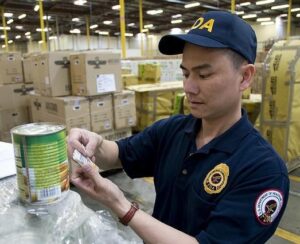Food exposed :
For our next story, I want you to have a scenario. Think of this. It’s raining outside. You are curled up on your couch. You are craving a bowl of piping hot noodles thanks to Quick Commerce. You won’t even have to get up. The vegetables, the noodles, the sauces, they all arrive at your doorstep.

But now picture the other side of the story. The same packet of noodles stored in a leaking go-down. The vegetables kept on a dirty floor and the sauces stored around scurrying cockroaches.
Are you still hungry? Welcome to the dark, grim underbelly of India’s Quick Commerce. This industry is worth nearly $4 billion. It is growing at breakneck speed. It promises instant gratification. But behind the scenes, it is cutting corners on safety and hygiene. Fast delivery, but playing fast and loose with rules. Case in point, ZEPTO. They have a facility in Mumbai’s Dharavi. The regulators decided to inspect it. That’s the Maharashtra Food and Drug Administration. They inspected the facility. They found some glaring lapses, like fungal growth on food products, items stored near stagnant water, expired products beside non-expired ones, and unregulated cold storage temperatures. So the regulators suspended ZEPTO’s food business license in Dharavi.
ZEPTO says it has initiated an internal review that it is complying with the authorities. But this case has found a chain reaction. The regulator, Maharashtra FDA, wants to dig deeper. It has decided to investigate all quick commerce facilities. And for consumers, it poses some tough, uncomfortable questions. Is this the cost of getting your groceries in 10 minutes? And are you compromising on safety?

You see, India’s food retail landscape is going through a revolution. On one hand is quick commerce.
Everything delivered to your doorstep in just minutes. ZEPTO, Blinkist, Swiggy, Instamart. They’ve built empires on speed. Stores are multiplying, expanding into tier 2 and tier 3 cities, and investors love these companies. On the other hand, there are warehouses powering this delivery utopia. They’re called the dark stores. These aren’t your air-conditioned supermarket aisles. They’re often under-maintained storage facilities. They’re cramped, stacked to the ceiling with food and drink, run by employees hustling against the clock.
And more often than not, they operate in the shadows, both literally and legally. India has around 3,000 dark stores. By 2026, this number could go up to 5,500, 5,500 dark stores. And amid this growth, a vital question is being ignored. Where are the rules? Dark stores often escape regulatory scrutiny. And given the rate at which they’re multiplying, it may be impossible to keep an eye on all of them. We do have a law, the Food Safety and Standards Act, but enforcement is often tax.
Annual audits are rare, surprise inspections are rarer. And when violations are found, the companies get a polite notice, maybe a temporary suspension. But beyond that, there’s often no accountability or real consequences. And that is why dark stores are booming. There’s money to be made, there’s demand to be met, and there’s no real oversight. Also, this is not just about dark stores. India’s relationship with food is paradoxical. We revere food culturally. We offer it to God.
We fight over biryani recipes like they’re matters of national security. But when it comes to how our food is made, processed, and stored, there’s a dangerous apathy.
I’ll give you examples. Paneer is the most adulterated product in the country. Our spices ar
e under investigation over contamination. Packaged water is now considered high risk, that too by the Indian Food Authority. And street food? Let’s not even go there. But the real issue is not that these problems exist. The real issue is that we don’t seem to care. India is in the middle of a health food boom. Urban Indians are obsessing over clean eating. Protein drinks, millet pastas, gluten-free atta, kombucha.
 They’re all the rage. Except we never ask how clean our food really is. The wellness trend often skips over the most basic idea. Food must first be safe before it can be healthy. And no, we are not saying that quick commerce should go. It solves real problems. It is here to stay. But that does not mean we pay for this convenience with our health. So what we need is accountability, real-time transparency, mandatory hygiene audits. And a proper food traceability system, like where did that tomato come from? Who handled it? We need better, stricter laws. Most importantly, a public that demands better. Until that changes, the real expiry date is on our trust.
They’re all the rage. Except we never ask how clean our food really is. The wellness trend often skips over the most basic idea. Food must first be safe before it can be healthy. And no, we are not saying that quick commerce should go. It solves real problems. It is here to stay. But that does not mean we pay for this convenience with our health. So what we need is accountability, real-time transparency, mandatory hygiene audits. And a proper food traceability system, like where did that tomato come from? Who handled it? We need better, stricter laws. Most importantly, a public that demands better. Until that changes, the real expiry date is on our trust.
